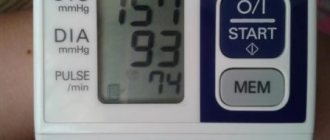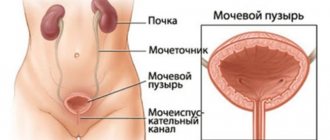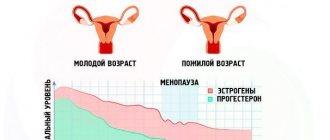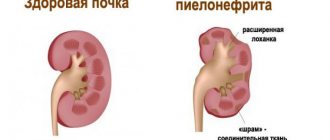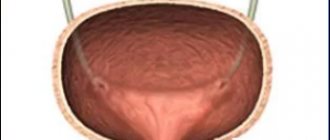Menopause is characterized by destabilization of many body processes, including the functioning of the cardiovascular system. Therefore, it is important to monitor blood pressure readings during menopause in women and to know the symptoms of hypertension for timely treatment.
It is worth immediately noting that arterial hypertension can occur almost unnoticed against the background of unpleasant manifestations of menopause. But ignoring this problem can cause serious illness.
The main reasons for pressure destabilization
Pressure surges during menopause can occur even in women who considered themselves completely healthy. Often the symptoms of high blood pressure are attributed to stress and sleep problems, but this is far from true.
The main reason why blood pressure can increase during menopause is hormonal destabilization . Lack of hormones can cause other negative factors that affect blood pressure:
- Problems with water-salt balance. The circulation of fluid in the body is disrupted, causing sodium to stagnate in the body's cells. As a result, blood volume increases and heart function is disrupted.
- Destabilization of the nervous system. Constant mood swings, depression, and apathy greatly affect the functioning of the heart.
- Sleep problems. In the absence of proper rest, the body cannot cope with its functions, against the background of which the pressure either decreases or increases.
- Thinning of blood vessels. A lack of estrogen provokes a narrowing of blood vessels due to the loss of elasticity of their walls. In addition, cholesterol levels may increase, which further interferes with blood circulation.
- Incorrect intake of hormones. If a woman voluntarily takes HRT drugs during menopause, she runs the risk of clogged blood vessels and increased blood viscosity.
- Weight problems. Every extra kilogram represents an additional load on the cardiovascular system, which, under the influence of this factor, has to work much more intensely.
How long do pressure changes last?
An indicator of 140/90 mm is considered optimal and safe for a woman’s health during menopause. mercury column. However, its fluctuations occur due to changes in hormonal levels characteristic of this condition.
Based on the stage of the disease, the increase in a woman’s blood pressure level may subside over several hours or days. If we mention the menopause period in general, blood pressure will constantly jump until postmenopause occurs.
In this case, it is important to carry out therapeutic actions, otherwise, as menopause ends, the woman will develop hypertension in an advanced stage. This will lead to an increase not only in blood pressure, but also in intracranial pressure, leading to the development of a host of health complications.
There is also a risk of developing a chronic form of hypertension if a woman does not follow the correct lifestyle - she often succumbs to stressful situations, eats poorly, and does not exercise.
Symptoms of high blood pressure
An increase in blood pressure during menopause may not have external signs of manifestation. But in some situations a woman may feel:
- dizziness;
- headache;
- feeling of nausea;
- noise and pulsation in the head;
- general weakness;
- shortness of breath;
- short-term loss of consciousness;
- heartache;
- insomnia.
We can conclude that during menopause, blood pressure increases almost imperceptibly, so a woman may confuse the symptoms of hypertensive disorders with general signs of menopause.
For any complaints, it is better to go to the hospital, because inaction in matters of blood pressure can cause serious consequences.
VSD, blood pressure, menopause
Surely you have heard about such a combination, which is far from successful. It must be said that doctors around the world are still arguing about vegetative-vascular dystonia. In a sense, this is still terra incognita for medicine. We can say that these are disorders of the nervous system, but the disease has a lot of symptoms. And each of the symptoms can be attributed to completely different diseases.
How does VSD most often manifest:
- Headaches;
- Rapid heart rate that has no clear cause;
- The appearance of hot flashes (heat that covers the whole body);
- Sudden mood changes;
- Frequent urge to urinate.
A woman often has no idea what’s wrong with her - she looks for the causes of her illness, going through the most terrible situations. But this is exactly how menopause can creep up.
The danger is that potential patients do not go to the doctor. They suffer panic attacks, heart failure, and headaches, which turns their lives into constant stress. But it is known that a stress factor often serves as the provocateur that triggers hypertension. If you start treatment in time, you can normalize blood pressure, the episodic increase of which has not yet become hypertension. But fear, indecision and inaction lead to the fact that VSD becomes arterial hypertension.
What can cause the disease?
Pressure changes during menopause can cause the development of the following pathologies:
- Atherosclerosis. The reason is loss of vascular elasticity;
- Stroke. The reason is a change in the structure of blood vessels;
- Heart attack. The reason is an increase in blood volume.
But if you maintain a healthy lifestyle and promptly treat the slightest disturbances in the functioning of the heart, you can avoid such consequences. The most important thing is to consult with your doctor and select the optimal therapy.
What other factors may influence?
Not all women during menopause have blood pressure problems due to a drop in hormone levels in the blood. Also, the cause of high blood pressure during menopause can be:
- cigarette consumption;
- abuse of alcoholic beverages and caffeine;
- inactive lifestyle;
- great physical activity;
- lactose intolerance;
- lack of calcium;
- lack of vitamin D;
- significant predominance of meat dishes in the diet.
If the patient wants to stabilize her health, then she must first pay attention to these factors. Because against the backdrop of an incorrect lifestyle, no drug treatment will give the desired effect.
Drug treatment (BP reading below 180 mm)
Pressure during menopause in women can be stabilized with the help of HRT, but if the blood pressure exceeds 180 mm, then hormonal drugs are contraindicated . It is also worth remembering that artificial hormones can further increase blood pressure if taken without medical supervision.
Most often, doctors prescribe combination drugs (estrogen and progesterone) for this problem:
- Klimonorm,
- Angelique,
- Divina,
- Pauzogest,
- Revmelid,
- Cliogest,
- Cyclo-Proginova,
- Ovidon.
These drugs are not only a way to eliminate pressure surges during menopause, but also treat the symptoms of menopause, which causes problems with blood pressure.
You can also use homeopathic medicines for menopause:
- Klimaktoplan,
- Remens tablets and drops,
- Klimadinon.
Their main advantage is the improvement of vascular tone without the occurrence of blood clots.
Treatment
With the onset of menopause, life does not stop, a new period simply begins. By consulting a doctor and starting the recommended treatment, you can live happily ever after. Most ailments and painful conditions can be successfully treated. It is advisable for women to take care of themselves, not to overexert themselves physically, to rest more often, to take medications on time, to eat right and lead a healthy lifestyle.
Drugs
When treating with drugs, it is important to remember that each drug has its own specific purposes.
List of commonly prescribed drugs:
- vitamin complexes - Complivit, Alphabet and Calcium Nycomed;
- diuretics for removing water and salt - Furosemide, Indapamide and Veroshpiron;
- for vascular restoration - Bisoprolol, Enalapril and Benazepril;
- sedatives - Afobazol, Persen and Tenoten;
- homeopathic - Klimadinon and Remens.
The decision about what medications to use to treat hypotension or hypertension with the onset of menopause must be made by the doctor.
Lifestyle
It is impossible to say with certainty how long the pressure drops will last. Everything is strictly individual, everyone has a different regime and distinctive features.
Lifestyle changes will help every woman to endure all the hardships and inconveniences of menopause:
- maintaining proper nutrition;
- more walks in the fresh air;
- fitness classes;
- swimming in the pool;
- healthy sex life;
- eliminating bad habits.
The key to a healthy lifestyle is a responsible and careful approach to your health.
Food
During menopause, metabolism slows down, which entails a sharp increase in body weight. At this moment it is very important to adjust your diet.
Eating healthy and avoiding certain foods will help you feel better.
The following foods should be avoided:
- pickled, spicy and salted;
- fatty and fried;
- rich and overly sweet;
- fast food.
Eating tasty, balanced food will help restore your health and remove excess fluid from the body.
List of useful products:
- cereals, legumes and soybeans;
- fresh vegetables and fruits;
- fish;
- lean meats and poultry;
- various varieties of nuts;
- dairy products.
It is recommended to eat fractionally, in small portions and only at certain times of the day.
Folk remedies
Treatment of jumps during menopause will improve with the simultaneous use of drugs and folk remedies. For example, motherwort and valerian have a calming effect on nervousness and causeless anxiety.
The following types of fees are in demand:
- rose hips and pink radiola;
- hawthorn, nettle and St. John's wort;
- calendula flowers, plantain and string;
- Melissa with valerian.
Other means can also be used, the use of which must be discussed in advance with a gynecologist.
Treatment of high blood pressure with a reading above 180 mm
Hypertension during menopause requires treatment with drugs that directly affect the blood vessels. These are ACE inhibitors:
- Benazepril,
- Lisinopril,
- Captopril,
- Fosinopril.
These drugs have a direct effect on the negative enzyme, which increases blood pressure. But hypertension during menopause and its treatment require additional use of diuretic drugs, which help remove excess fluid from body tissues:
- Indapamide,
- Furosemide,
- Veroshpiron.
High blood pressure occurs in 60% of women who have entered menopause. If you immediately pay attention to the problem, you can avoid more serious violations. But treating high blood pressure should only be done under the supervision of a doctor.
Features of treatment for menopause
There are many features and limitations in treatment during menopause.
Hormone replacement therapy (HRT) is not prescribed for the following diseases:
- kidneys and liver;
- endometriosis;
- vaginal bleeding;
- breast tumors;
- diabetes mellitus;
- after a stroke or heart attack.
Additional diagnostics may be required to determine all the nuances of therapy.
Traditional medicine in the fight against high blood pressure
If pressure surges are not too high, then it is quite possible to get by with folk therapy. It is best to use medicinal herbs in the morning and before bed. Among the most effective herbs it is worth highlighting:
- Hawthorn;
- Sage;
- Red clover;
- Mint.
A woman can make her own preparations or buy them at a pharmacy. Can be used in the form of decoctions, tinctures and teas. It is allowed to combine medicinal herbs and use only one name. You can always resort to Valerian, after which the blood pressure level also drops.
High blood pressure and menopause often occur even in women who did not experience problems with the cardiovascular system before menopause. The most important thing in this matter is to organize not only treatment, but also general support for the body. Giving up alcohol, cigarettes, poor diet and a sedentary lifestyle is already half the way to solving the problem with blood pressure.

